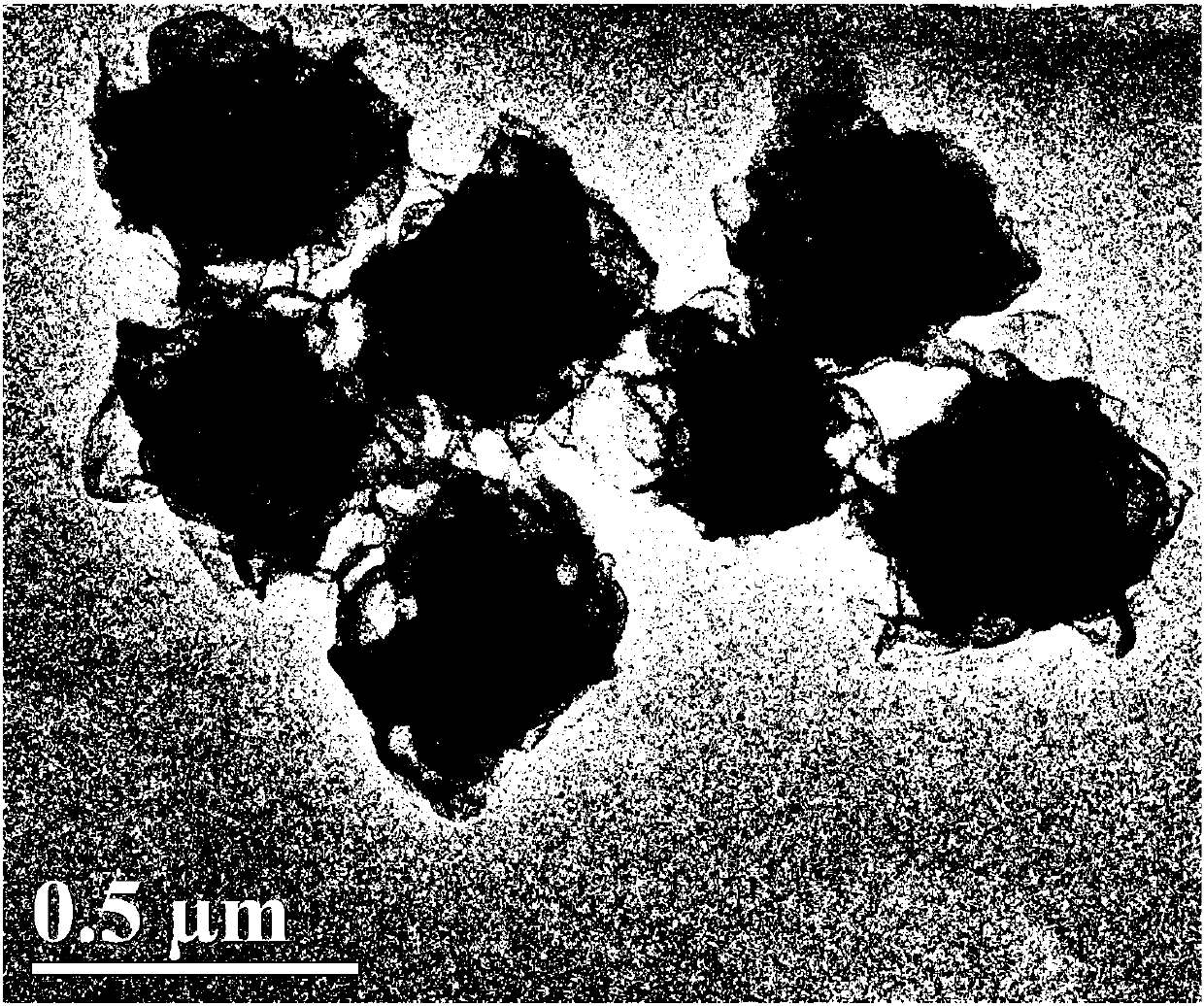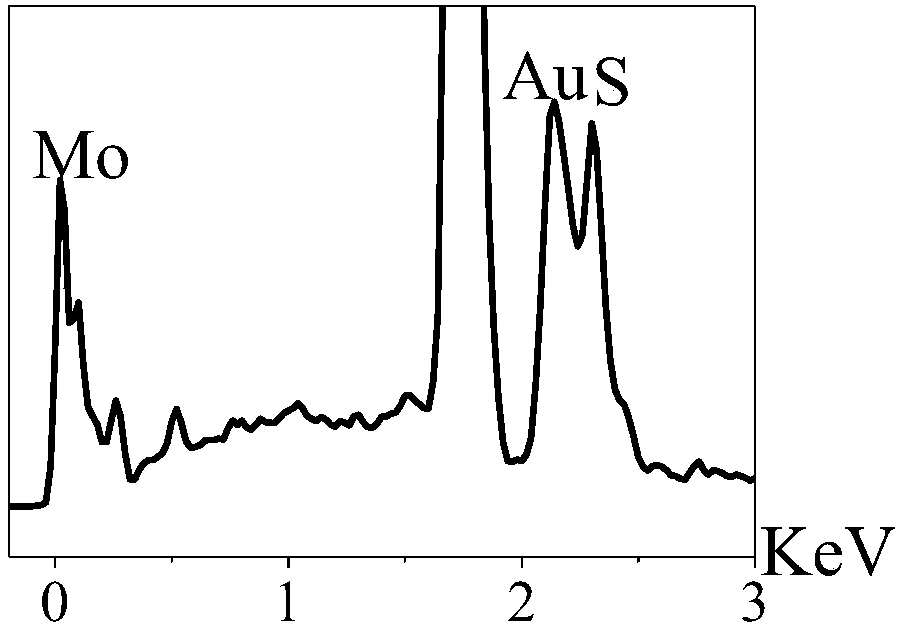A kind of nanometer material and preparation method based on molybdenum sulfide efficient photocatalysis to prepare hydrogen
A nano-material, molybdenum sulfide technology, applied in the field of catalysis, can solve the problems of low efficiency of plasma-enhanced catalysis, achieve significant catalytic effect, improve light absorption, and reduce costs
- Summary
- Abstract
- Description
- Claims
- Application Information
AI Technical Summary
Problems solved by technology
Method used
Image
Examples
Embodiment 1
[0021] Mix 200 μl of chloroauric acid solution (50 mg / ml) with 100 ml of deionized water, heat to boiling, then add dropwise 700 μl of sodium citrate solution (1 wt %), and heat for 10 minutes to obtain a gold nanoparticle solution. 0.5 g of cysteine was dissolved in 100 ml of deionized water to obtain solution A. Dissolve 0.5-1.0 g of sodium molybdate in 100 ml of deionized water to obtain solution B. Solution A and solution B were mixed and sonicated for 2-4 hours at a volume ratio of 2:1. Add 40-80ml of gold nanoparticle solution into 10ml of 1% polyethylene glycol solution, and then mix with the above-mentioned ultrasonic mixture of A and B, and then carry out hydrothermal reaction at 200°C for 10h. After the reaction, the solution was dried in an oven at 110°C for 24 hours to obtain a gold nanoparticle / molybdenum sulfide core-shell nanomaterial.
[0022] Characterization: Take 0.1 g of gold nanoparticles / molybdenum sulfide core-shell nanomaterials and disperse them in...
Embodiment 2
[0024] Mix 200 μl of chloroauric acid solution (70 mg / ml) with 100 ml of deionized water, heat to boiling, then add dropwise 700 μl of sodium citrate solution (2 wt %), and heat for 15 minutes to obtain a gold nanoparticle solution. 0.7 g of cysteine was dissolved in 100 ml of deionized water to obtain solution A. 0.7 g of sodium molybdate was dissolved in 100 ml of deionized water to obtain solution B. Solution A and solution B were mixed and sonicated for 2-4 hours at a volume ratio of 2:1. 50ml of gold nanoparticle solution was added to 20ml of 2% polyethylene glycol solution, then mixed with the ultrasonic mixture of A and B above, and then subjected to hydrothermal reaction at 200°C for 16h. After the reaction, the solution was dried in an oven at 110°C for 36 hours to obtain a gold nanoparticle / molybdenum sulfide core-shell nanomaterial.
[0025] Characterization: Take 0.1 g of gold nanoparticles / molybdenum sulfide core-shell nanomaterials and disperse them in 100 ml...
Embodiment 3
[0027] Mix 200 μl of chloroauric acid solution (80 mg / ml) with 100 ml of deionized water, heat to boiling, then add dropwise 700 μl of sodium citrate solution (3 wt %), and heat for 10 minutes to obtain a gold nanoparticle solution. 0.8 g of cysteine was dissolved in 100 ml of deionized water to obtain solution A. 0.8 g of sodium molybdate was dissolved in 100 ml of deionized water to obtain solution B. Solution A and solution B were mixed and sonicated for 2-4 hours at a volume ratio of 2:1. Add 60ml of gold nanoparticle solution into 30ml, 3%, polyethylene glycol solution, and then mix with the above-mentioned ultrasonic mixture of A and B, and then carry out hydrothermal reaction at 200°C for 18h. After the reaction, the solution was dried in an oven at 110°C for 48 hours to obtain a gold nanoparticle / molybdenum sulfide core-shell nanomaterial.
[0028] Characterization: Take 0.1 g of gold nanoparticles / molybdenum sulfide core-shell nanomaterials and disperse them in 10...
PUM
| Property | Measurement | Unit |
|---|---|---|
| concentration | aaaaa | aaaaa |
Abstract
Description
Claims
Application Information
 Login to View More
Login to View More - R&D
- Intellectual Property
- Life Sciences
- Materials
- Tech Scout
- Unparalleled Data Quality
- Higher Quality Content
- 60% Fewer Hallucinations
Browse by: Latest US Patents, China's latest patents, Technical Efficacy Thesaurus, Application Domain, Technology Topic, Popular Technical Reports.
© 2025 PatSnap. All rights reserved.Legal|Privacy policy|Modern Slavery Act Transparency Statement|Sitemap|About US| Contact US: help@patsnap.com


